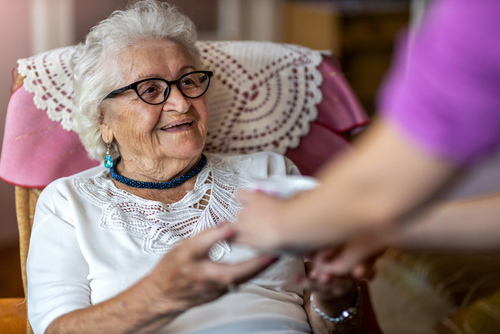Newsletter Signup - Under Article / In Page
"*" indicates required fields
Dr Andrea Pfeifer, chief executive officer of AC Immune SA, talks to Labiotech about dementia research, and how dementia affects women. She also addresses how vital research is when it comes to addressing women’s health.
Dementia is a leading cause of death in women, but it doesn’t get the attention of other diseases, such as breast cancer. Why do you think that is and what can be done?
Dementia and associated neurodegenerative disorders, such as Alzheimer’s and Parkinson’s, are often viewed as normal parts of aging by the general public. But while such brain disorders are common, they are also complex and not yet fully understood, with many key stakeholders still learning how to communicate effectively with the public. Going forward we should be doing much better.
We are learning how to potentially delay, prevent and treat neurodegenerative diseases but there is still much to do. In the meantime, new drug approvals and lifestyle changes such as physical and mental activity, and adjustments to one’s diet, offer possible benefits against dementia.
Things are changing and we expect this to accelerate over the rest of this decade. A lot has been learned from oncology, both in terms of how to raise awareness and in terms of mobilizing research efforts to meet urgent crises. Do you remember the “War on Cancer” campaign? Today, dementia research is probably at a similar stage to that of oncology 20 years ago. In fact, much of the progress made in the cancer space came from the mobilization of women and the awareness campaigns initiated to encourage breast and cervical cancer screening. This type of patient advocacy power grew into the phenomenal organizations we have today in these and other types of cancers.
These groups continue to raise visibility facilitating early diagnosis and treatment, while also helping raise research funding and interact with regulatory agencies to provide the patient perspective. The impact of patient advocacy has now reached well beyond cancer into many other diseases, and increasingly in dementia. There is still much work to be done, but we have a roadmap thanks to these precedents: we need to better explain the science underlying the disease, move the discussion to the level of the policy- and decision makers, build on role models to remove taboos and most of all, provide access to earlier diagnosis and approved therapeutics.
Are women more at risk from dementia compared to men?
Yes, women are more likely than men to develop dementia in their lifetimes. Today, approximately 65% of people that are living with dementia are women. One potential reason for the greater prevalence is the longer life expectancy of women. But studies have shown that even in age-matched groups the incidence of Alzheimer’s disease is higher in women compared to men, so there must be other reasons.
And the list of possible biological and environmental factors causing neurodegenerative diseases is long. Certain genetic mutations linked to Alzheimer’s disease, are more prevalent in women, and autoimmune disorders are more common in women, which could be relevant because one of the hallmark proteins in Alzheimer’s called amyloid beta may be linked to the brain’s immune system.
Similarly, the menopause impacting estrogen levels might make women more vulnerable to Alzheimer’s. Among the environmental factors, socioeconomic disadvantages experienced by women have also been proposed to increase the risk of developing the disease.
Overall, this list is not exhaustive but clearly shows one thing: the elevated risk of Alzheimer’s disease in women has not been sufficiently studied to provide a clear answer and research has only recently started to investigate this question.
Why is it important to consider differences between individuals in drug discovery and include more women (and minorities) in clinical trials?
In the past research did not sufficiently differentiate between different sexes or genetic groups. This must change. Just like in cancer, there are many different forms of dementia and there is no such thing as one cause. In order to successfully treat Alzheimer’s and other dementias, or even better to prevent them, precision medicine approaches are needed, where patients are accurately diagnosed and treated according to their specific pathology.
For this to happen, clinical studies, genetic databases and so-called biobanks need to reflect the diversity of the global population. We have seen some progress in recently years, where clinical studies of drugs for large population diseases, like dementia, are conducted on a global basis.
According to the UN, only 33% of researchers worldwide are women. What needs to happen for more women to work in research-based biotechnology companies?
First of all, there are problems in the world for which we need to enable the best available talents to find answers and solutions. If only 33% of the world’s researchers are women, you could believe that the existing talent pool is not being fully exploited. The number of female students has risen steadily, and in some disciplines such as medicine, even exceeds the number of male students. The stigma for girls entering science at university has certainly diminished but much more needs to be done by industry to convert these higher student levels into careers.
Biotech and pharma companies need to continue to improve on ways to attract and keep women in the workforce, such as improving basic working conditions, for example, by making it easier to combine work and family life, by introducing more flexible working models or onsite childcare.






